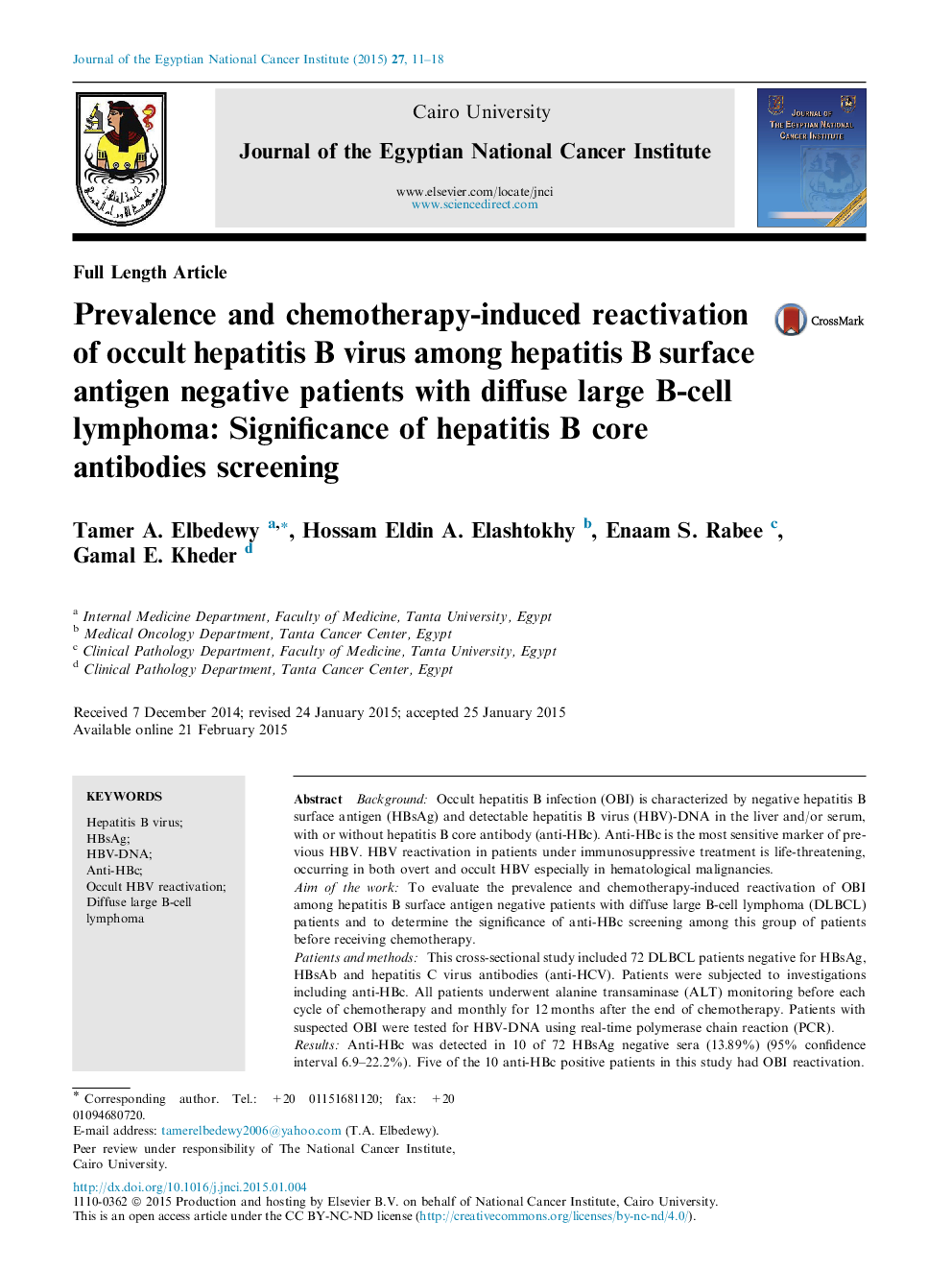| Article ID | Journal | Published Year | Pages | File Type |
|---|---|---|---|---|
| 3988913 | Journal of the Egyptian National Cancer Institute | 2015 | 8 Pages |
BackgroundOccult hepatitis B infection (OBI) is characterized by negative hepatitis B surface antigen (HBsAg) and detectable hepatitis B virus (HBV)-DNA in the liver and/or serum, with or without hepatitis B core antibody (anti-HBc). Anti-HBc is the most sensitive marker of previous HBV. HBV reactivation in patients under immunosuppressive treatment is life-threatening, occurring in both overt and occult HBV especially in hematological malignancies.Aim of the workTo evaluate the prevalence and chemotherapy-induced reactivation of OBI among hepatitis B surface antigen negative patients with diffuse large B-cell lymphoma (DLBCL) patients and to determine the significance of anti-HBc screening among this group of patients before receiving chemotherapy.Patients and methodsThis cross-sectional study included 72 DLBCL patients negative for HBsAg, HBsAb and hepatitis C virus antibodies (anti-HCV). Patients were subjected to investigations including anti-HBc. All patients underwent alanine transaminase (ALT) monitoring before each cycle of chemotherapy and monthly for 12 months after the end of chemotherapy. Patients with suspected OBI were tested for HBV-DNA using real-time polymerase chain reaction (PCR).ResultsAnti-HBc was detected in 10 of 72 HBsAg negative sera (13.89%) (95% confidence interval 6.9–22.2%). Five of the 10 anti-HBc positive patients in this study had OBI reactivation.ConclusionThe study concluded that anti-HBc screening is mandatory before chemotherapy. HBsAg-negative/anti-HBc-positive patients should be closely observed for signs of HBV reactivation through the regular monitoring of ALT. Prophylaxis lamivudine is recommended for anti-HBc positive patients before chemotherapy.
